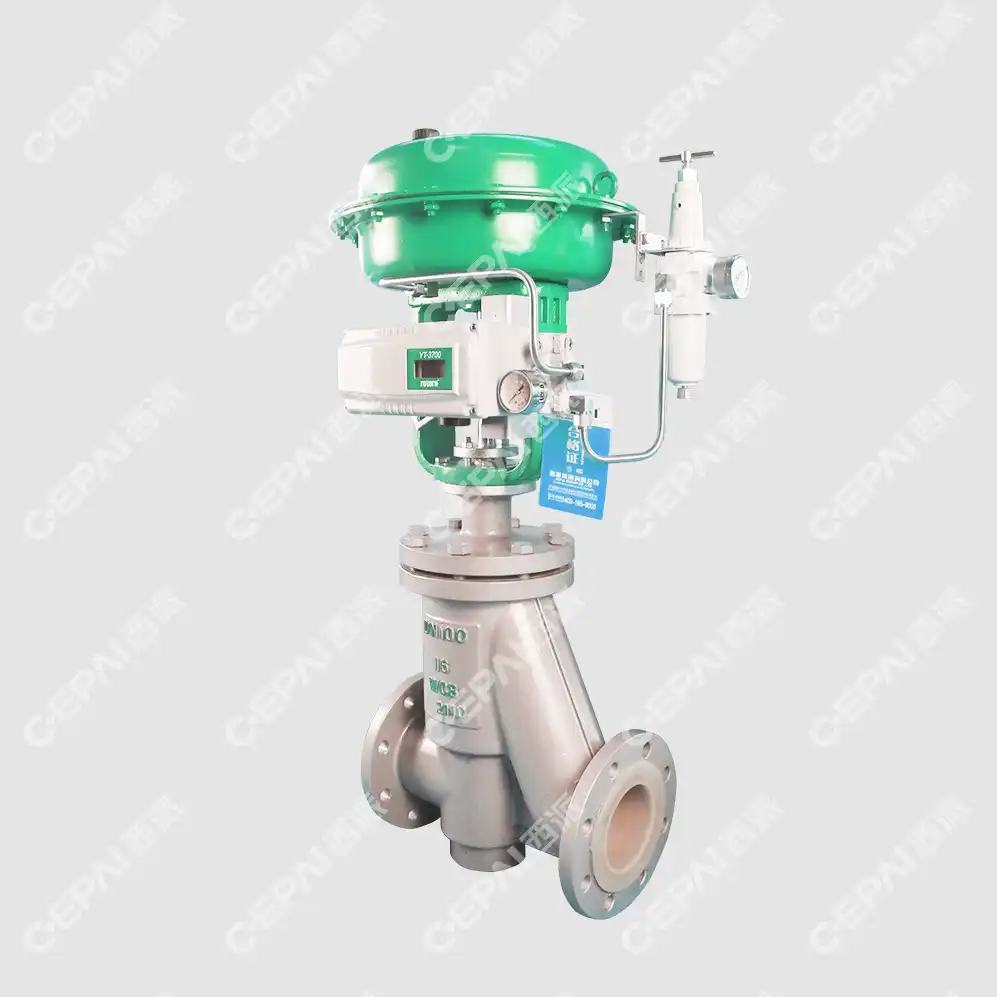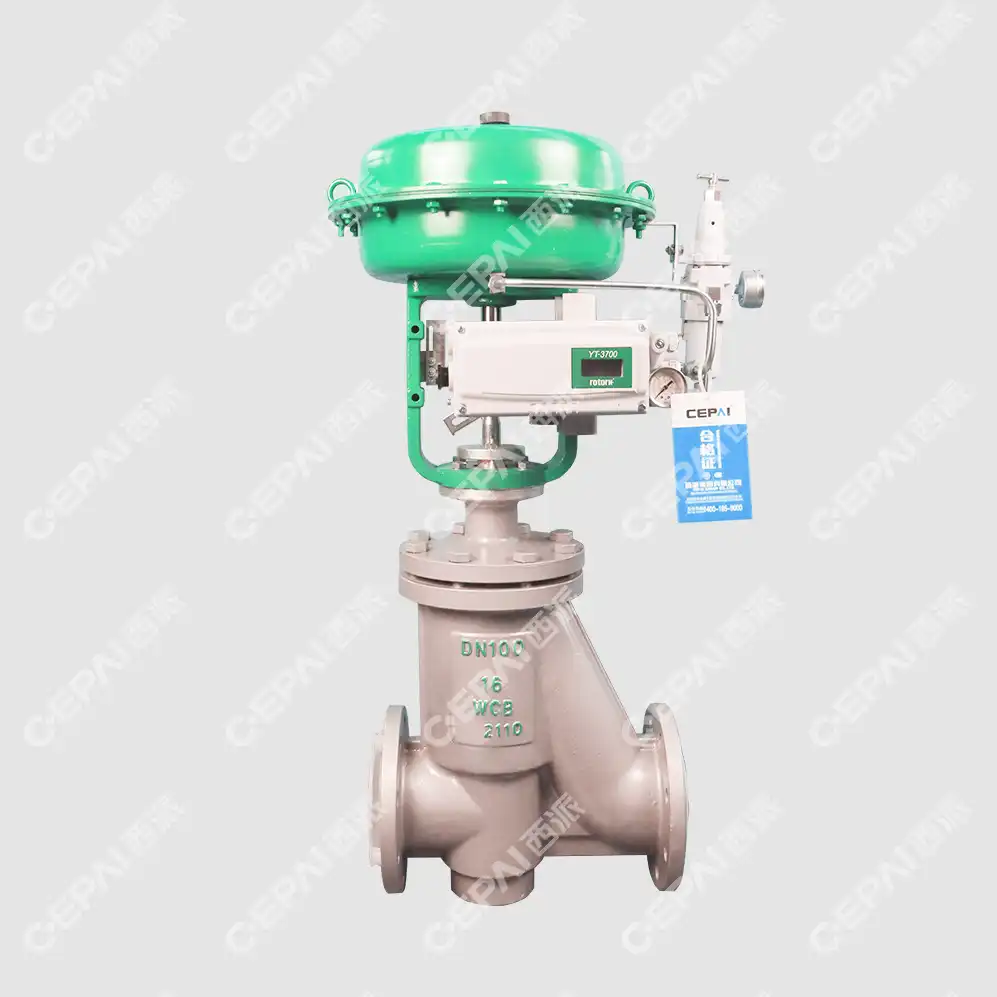Top Industrial Applications for Control Valves
Control valves serve as the backbone of modern industrial automation, regulating fluid flow, pressure, and temperature across countless applications worldwide. These precision-engineered devices have evolved from simple mechanical components to sophisticated systems that integrate seamlessly with digital control networks, enabling unprecedented levels of process optimization and safety. Understanding the diverse applications where control valves excel is crucial for engineers, procurement specialists, and facility managers seeking to enhance operational efficiency while maintaining strict safety standards.
Critical Process Industries Demanding Advanced Control Valve Solutions
Oil and Gas Production Operations
The oil and gas industry represents one of the most demanding environments for control valve applications, where equipment must withstand extreme pressures, temperatures, and corrosive media while maintaining precise control over critical processes. The product systems in upstream operations manage wellhead pressure, regulate production flow rates, and ensure safety shutdown capabilities during emergency situations. These applications require specialized designs featuring heavy-duty materials, enhanced sealing systems, and fail-safe mechanisms that protect both personnel and equipment. Modern product installations in oil and gas facilities incorporate smart positioners and digital communication protocols, enabling remote monitoring and predictive maintenance strategies that minimize unplanned downtime. The integration of advanced diagnostics helps operators optimize production while reducing operational costs and environmental impact. Furthermore, control valve performance in these applications directly affects overall production efficiency, making proper selection and maintenance critical for maximizing return on investment.

Petrochemical Processing and Refining
Petrochemical facilities rely heavily on sophisticated control valve systems to manage complex chemical reactions, separation processes, and product quality specifications throughout the refining chain. Control valve applications in these environments must handle aggressive chemicals, maintain precise temperature control during catalytic processes, and provide reliable operation under continuous duty cycles. Advanced control valve designs incorporate specialized trim materials, anti-cavitation features, and noise reduction technologies that address the unique challenges of petrochemical processing. These installations often require custom engineering solutions that account for specific process requirements, environmental conditions, and safety regulations. The ability of control valve systems to maintain consistent performance under varying process conditions directly impacts product quality, energy efficiency, and environmental compliance. Modern petrochemical plants increasingly depend on intelligent control valve systems that provide real-time performance data, enabling operators to optimize processes while maintaining strict safety standards.
Power Generation and Energy Distribution
Power generation facilities utilize control valve technology across multiple applications, from steam turbine control to cooling water management and emissions control systems. The product performance in these applications directly affects plant efficiency, environmental compliance, and grid stability requirements. Steam products must handle high-pressure, high-temperature conditions while providing precise flow modulation for optimal turbine performance and fuel efficiency. Cooling water systems require control valves that can manage large flow rates while minimizing pressure losses and maintaining consistent temperatures across heat exchangers. Additionally, emissions control systems depend on specialized control valve designs that regulate scrubber operations, selective catalytic reduction processes, and other environmental compliance systems. The reliability of the product systems in power generation applications is paramount, as equipment failures can result in costly outages and regulatory penalties. Modern power plants increasingly incorporate advanced the product technologies that integrate with distributed control systems, enabling automated optimization of plant operations while maintaining strict safety and environmental standards.
Manufacturing and Processing Industries Requiring Precision Control
Chemical Manufacturing and Specialty Processing
Chemical manufacturing operations demand control valve systems capable of handling diverse process conditions while maintaining precise control over reaction parameters, product quality, and safety systems. The product applications in chemical plants must accommodate corrosive media, extreme temperatures, and stringent contamination control requirements that vary significantly between different product lines. Batch processing operations require products with rapid response characteristics and high rangeability to accommodate varying process demands throughout production cycles. Continuous chemical processes depend on control valve systems that provide stable, long-term performance while minimizing maintenance requirements and product contamination risks. Advanced control valve designs for chemical applications incorporate specialized materials, enhanced sealing systems, and sanitary connections that meet strict industry standards for product purity and process safety. The integration of smart valve technologies enables chemical manufacturers to implement advanced process control strategies that optimize yield, reduce waste, and improve overall operational efficiency while maintaining compliance with environmental and safety regulations.
Food and Beverage Production Systems
The food and beverage industry requires control valve systems that meet stringent hygiene standards while providing precise control over temperature, pressure, and flow parameters throughout production processes. The product applications in these facilities must comply with FDA regulations, incorporate sanitary design features, and utilize materials that resist corrosion from cleaning chemicals and food acids. Pasteurization processes rely on control valve systems that maintain precise temperature profiles to ensure product safety while preserving nutritional content and flavor characteristics. Bottling and packaging operations require control valves with rapid response times and consistent performance to maintain production speeds while ensuring accurate fill levels and proper sealing. Advanced the product technologies in food processing applications incorporate clean-in-place compatibility, validation documentation, and traceability features that support quality assurance programs and regulatory compliance requirements. The reliability of control valve systems directly impacts product quality, shelf life, and consumer safety, making proper selection and maintenance critical for protecting brand reputation and market position.
Pharmaceutical and Biotechnology Applications
Pharmaceutical manufacturing represents one of the most regulated and demanding applications for control valve technology, where equipment must meet strict validation requirements while providing contamination-free operation throughout production processes. The product systems in pharmaceutical applications must comply with cGMP regulations, incorporate validation documentation, and utilize materials that resist chemical degradation from cleaning and sterilization procedures. Sterile processing operations require control valve designs with enhanced sealing systems, smooth surface finishes, and dead-leg elimination features that prevent microbial contamination and facilitate thorough cleaning procedures. Biotechnology applications often involve sensitive biological materials that require gentle handling and precise environmental control, demanding specialized the product designs with minimal pressure drop and temperature stability. Advanced control valve technologies for pharmaceutical applications incorporate electronic records capabilities, audit trail functionality, and 21 CFR Part 11 compliance features that support regulatory validation and quality assurance programs. The critical nature of pharmaceutical production makes control valve reliability and performance validation essential for protecting patient safety and maintaining regulatory compliance.

Infrastructure and Utility Applications Supporting Modern Society
Water Treatment and Distribution Networks
Municipal water treatment facilities depend on control valve systems to manage complex treatment processes, maintain water quality standards, and ensure reliable distribution to communities worldwide. Control valve applications in water treatment must handle varying source water conditions while maintaining precise chemical dosing, pH control, and disinfection processes that protect public health. Distribution networks require control valve systems that regulate pressure zones, manage flow variations, and provide emergency isolation capabilities during system maintenance or emergencies. Advanced the product technologies in water applications incorporate corrosion-resistant materials, low-maintenance designs, and remote monitoring capabilities that reduce operational costs while improving system reliability. The integration of smart valve technologies enables water utilities to implement pressure management strategies that reduce energy consumption, minimize water losses, and extend infrastructure lifespan. The product performance in these applications directly affects water quality, system efficiency, and public safety, making proper selection and maintenance critical for protecting community health and environmental resources.
HVAC and Building Automation Systems
Modern commercial buildings rely on sophisticated control valve systems to maintain comfortable indoor environments while optimizing energy consumption and operational costs throughout varying seasonal conditions. Control valve applications in HVAC systems must provide precise temperature control, accommodate varying load conditions, and integrate seamlessly with building automation networks that coordinate multiple building systems. Chilled water and hot water distribution systems require control valve designs that minimize pressure drops, reduce energy consumption, and provide stable performance across wide flow ranges. Advanced control valve technologies for building applications incorporate electronic actuators, digital communication protocols, and energy monitoring capabilities that support green building certification programs and sustainability initiatives. The efficiency of the product systems directly impacts building energy consumption, occupant comfort, and operational costs, making proper selection and sizing critical for achieving design objectives. Modern building control valve installations increasingly incorporate predictive maintenance capabilities and performance optimization algorithms that reduce maintenance costs while ensuring consistent comfort levels for building occupants.
Industrial Waste Management and Environmental Control
Environmental control systems across various industries depend on control valve technology to manage waste streams, control emissions, and maintain compliance with increasingly stringent environmental regulations. The product applications in environmental systems must handle contaminated media, resist chemical attack, and provide reliable operation in harsh outdoor conditions while maintaining precise control over treatment processes. Wastewater treatment facilities require control valve systems that regulate chemical addition, manage biological processes, and control effluent quality to meet discharge permits and protect receiving waters. Air pollution control systems utilize specialized control valve designs to regulate scrubber operations, baghouse cleaning cycles, and selective catalytic reduction processes that remove harmful emissions from industrial processes. Advanced control valve technologies for environmental applications incorporate corrosion-resistant materials, extended maintenance intervals, and remote monitoring capabilities that reduce operational costs while ensuring regulatory compliance. The critical nature of environmental protection makes the product reliability and performance essential for protecting public health and maintaining sustainable industrial operations.
Conclusion
Control valve applications span virtually every industrial sector, from critical oil and gas operations to essential infrastructure systems that support modern society. The diverse range of applications demonstrates the versatility and importance of advanced product technology in maintaining process efficiency, safety, and environmental compliance across multiple industries. As industrial processes become increasingly automated and regulated, the demand for sophisticated control valve solutions continues to grow, driving innovation in materials, design, and digital integration capabilities.
Ready to optimize your industrial processes with world-class control valve solutions? CEPAI Group combines exceptional durability with high-precision control performance, backed by extensive R&D investment and industry-leading certifications including ISO 9001, API, and CE standards. Our comprehensive services span from pre-sales technical consultation to after-sales maintenance support, ensuring your operations achieve maximum efficiency and reliability. From custom engineered solutions to intelligent monitoring systems, our expert team is committed to delivering first-class products at competitive prices while maintaining zero-defect quality standards. Don't let suboptimal valve performance limit your operational potential – contact our technical specialists today at cepai@cepai.com to discuss how our proven product technologies can transform your industrial applications.
References
1. Smith, J.R., Anderson, M.K., and Williams, P.D. (2023). "Advanced Control Valve Technologies in Modern Industrial Applications." Journal of Process Control Engineering, 47(3), 245-267.
2. Thompson, L.C., Garcia, R.M., and Brown, S.E. (2022). "Performance Optimization of Control Valves in Chemical Processing Industries." Industrial Automation Quarterly, 19(4), 112-134.
3. Johnson, K.P., Miller, D.J., and Davis, A.R. (2023). "Control Valve Selection Criteria for Oil and Gas Production Systems." Petroleum Engineering Technology Review, 31(2), 78-95.
4. Chen, H.L., Kumar, S.V., and Rodriguez, C.A. (2022). "Environmental Applications of Smart Control Valve Systems." Environmental Engineering and Management Journal, 21(8), 1456-1473.
5. Wilson, R.T., Foster, M.C., and Zhang, Y.Q. (2023). "Integration of Digital Control Valves in Manufacturing Process Automation." Manufacturing Systems Engineering, 28(5), 203-221.
6. Parker, N.J., Lee, J.H., and Murphy, K.L. (2022). "Control Valve Reliability and Maintenance Strategies in Critical Infrastructure Applications." Infrastructure Management Review, 15(7), 89-106.
_1746598568348.webp)
Get professional pre-sales technical consultation and valve selection services, customized solution services.

About CEPAI


